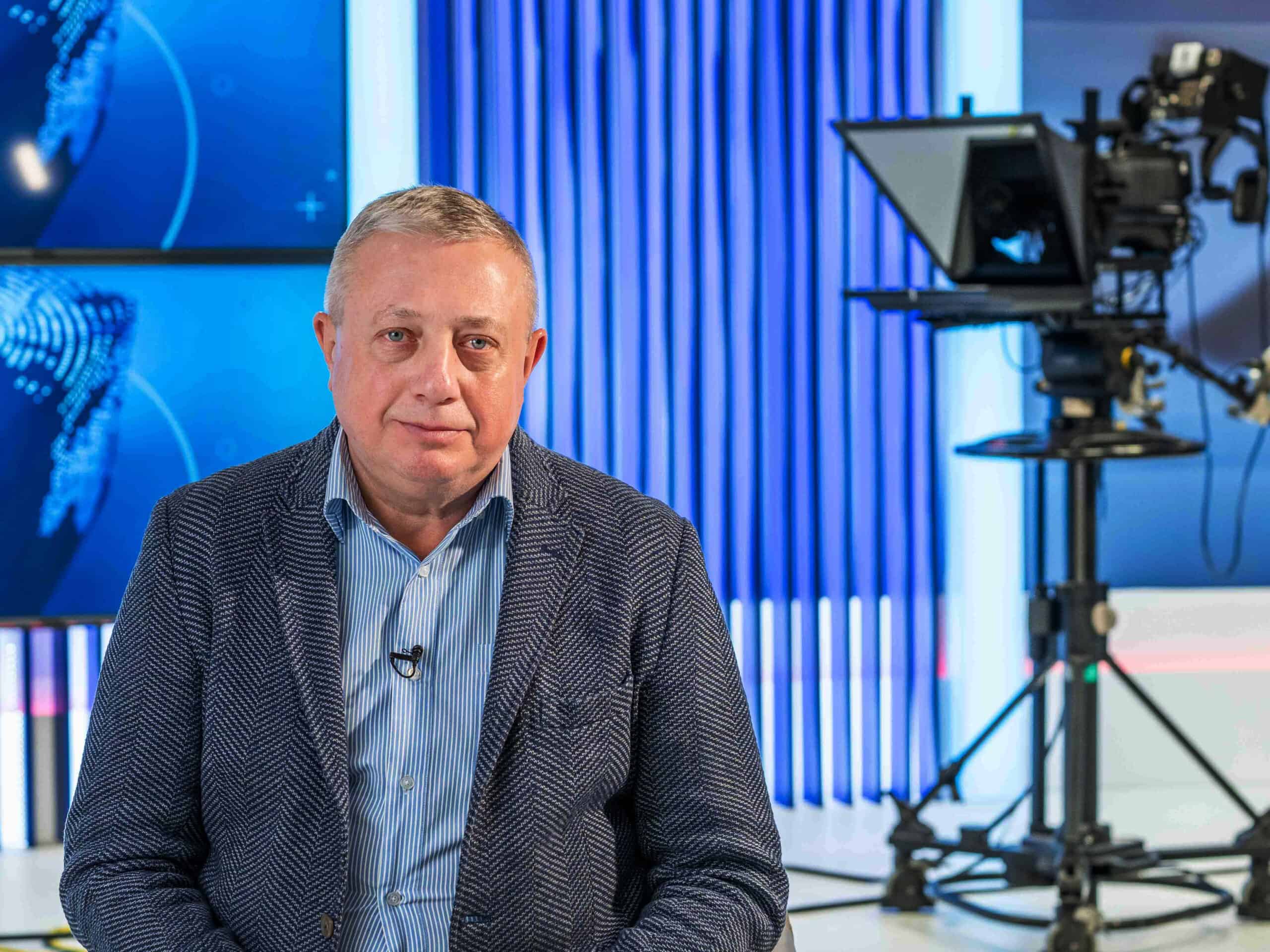Moldova: on the frontline of Russia’s misinformation war

Moldova is facing a barrage of Russian propaganda, misinformation and fake news. Alexei Tulbure, a media commentator and director of Moldova’s Oral History Institute, is working to counter this threat.
Alexei Tulbure, a John Smith Fellow (Moldova, 2000), is determined to use every means available to help Moldovans distinguish between facts and propaganda. This is a major challenge in a country in which many people still look towards Russia as an ally and protector.
“In Moldova, a large number of people believe in what the Kremlin is delivering here as propaganda and misinformation,” Alexei says. “For decades, Russian television has been airing in Moldova, so people are used to believing it. Now it’s very difficult to change their minds and help them distinguish between objective information and propaganda fakes. Then there are Moldovans who pick up the messages coming from Moscow and multiply them here.
“People are distracted by this propaganda. They are not thinking about solving their real problems. They’re thinking about geopolitics and the confrontations between the West and the East. So now, during the war in Ukraine, propaganda is a very dangerous weapon. Because that is the war for the people’s minds.”
Impartial information
Alexei is part of a concerted effort to counter this through Trigger and DeFacto, two political television series aimed at a Russian-speaking audience. Trigger is a political talk show broadcast weekly on local TV station Jurnal. De Facto is a short programme shown first on YouTube and Facebook and then rebroadcast by Jurnal. Both programmes debunk Russian misinformation around the war in Ukraine and Moldova’s internal affairs.
Alexei says: “We interpret events and the declarations of different actors from a democratic point of view and help people understand where they can find impartial information. We show people where and what is propaganda. But we also speak about democracy, human rights and institutions. For instance, we explain how democratic institutions should work in different situations. We ask, what are the rights of the people? And how they can use them in their interactions with the state?
“Our work concentrates on explaining to the people how they can protect themselves from authoritarianism and propaganda.”
Understanding the past
As the founder and director of the Oral History Institute of Moldova, Alexei is also working to preserve his country’s collective memory. The institute gathers testimonies and memories of ordinary Moldovans about past events, including traumatic experiences that took place during the Holocaust and Soviet era repression.
He says: “We should accept the past in all its complexity – both its heroic and tragic aspects. We should understand that we were not only victims, but also perpetrators. We’re not going to sanction anyone or make anyone guilty for the past. But we would like to educate our people and help them build a world where such violations of human rights and liberties are not possible.”
As part of this, the Oral History Institute is reaching out to teachers so they can educate their students about civic responsibility and how to stand up for their rights. “This is to help them resist authoritarian aspirations coming from domestic or external powers,” says Alexei. “It’s important because the children of today are the leaders of tomorrow.”
Understanding the past may help Moldovans see through Russian propaganda now and having a sense of history can help strengthen Moldovan identity. “All this is important for building up the students’ sense of democratic identity,” says Alexei. “Fundamental knowledge about human rights, the ability to protect these rights and to unite efforts to create solidarity against authoritarian aspiration, are essential for effective resilience to propaganda.”
Beautiful opportunity to learn
Alexei’s action plan from his John Smith Trust fellowship in 2000 focused on advancing fundamental rights and freedoms, peace and democracy. During this time Alexei was an MP in Moldova’s parliament, specialising in foreign affairs. He went on to have a diplomatic career, representing Moldova at the UN and the Council of Europe.
He says: “The John Smith Trust programme is unique – it’s a beautiful opportunity to learn. Personally, I appreciated very much that I had this opportunity to learn about democratic institutions in the UK and how human rights are protected there. I encourage others to apply and have this great opportunity to educate themselves.”
At the time, the UK was in the process of transferring powers from central government to the nations and regions. “I remember learning about devolution during the programme,” says Alexei. “We learned about the relations between London and Edinburgh and the regions, how powers were divided, and how the institutions acted and interacted at the central and regional levels.”
European integration
Alexei is firmly pro-European and, despite the current difficulties in Moldova and the war in Ukraine, he is cautiously hopeful for his country’s future. Last year, Moldova became a candidate country for EU membership, and it has an action plan to achieve full membership.
Alexei says: “We should concentrate on transformations and reforms such as combatting corruption and the reform of justice. The economy is very weak – we need to produce more and export more. We should increase pensions because pensioners are the most vulnerable social group in Moldova.
“These are very difficult tasks but there is a window of opportunity for Moldova in this tragic period to make a breakthrough and to more forward with European integration. There is no question in Moldova that, for the majority of the population, our future is with Europe.”
Find out about our Fellowship programmes.
Photo by Sarah Oughton.
